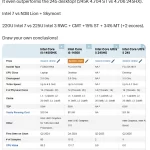Trans-Pacific vehicle cargo ship entering the Columbia River. Photo: Jeffrey St. Clair.
Effective April 3, US president Donald Trump announced on March 26, Americans will pay a 25% tax (above and beyond existing taxes) on imported cars.
The measure includes “temporary exemptions for auto parts” while tax vultures “sort through the complexity” of implementing Tariff Man’s latest scheme for picking your pocket, but the massive tax hike will eventually also hit US auto manufacturers who rely on imported parts for cars assembled domestically and sold as “Made In America.”
Undetermined: Whether United Auto Workers president Shawn Fain believes the workers he claims to represent are idiots, whether he’s an idiot himself, or both. “These tariffs are a major step in the right direction,” Fain says in a UAW press release, “for autoworkers and blue-collar communities across the country.”
The release refers to the misnamed North American Free Trade Agreement (NAFTA) as a “free trade disaster” that has “has devastated the working class.”
Wrong on all counts.
NAFTA isn’t “free trade,” it’s government-managed trade with slightly fewer restrictions and barriers than prior to its 1994 implementation.
Far from a “disaster” that has “devastated the working class,” both US manufacturing output and the real US median wage are far higher since NAFTA than before — the former by about 36%, the latter by about 30%.
US auto industry employment increased for nearly a decade after NAFTA’s implementation, came down with increased automation, then increased again to about the pre-NAFTA level.
In 1993, the US produced about 11.2 million motor vehicles; in 2023, 10.6 million. That may have something to do with the 100,000-mile average lifespan of a car built in 1993 versus the 200,000-mile lifespan of a car built in 2024.
Yes, many auto workers had to find new jobs once imported vehicles were allowed to compete with American-built vehicles. Yes, that made some of their lives harder and left some of them worse off, at least temporarily and sometimes long-term.
Welcome to the real world, where auto workers aren’t unique and special snowflakes who never have to change careers like the rest of us. The average American changes jobs 12 times in his or her lifetime … and the average American, including one who worked on a Ford assembly line at some point, is more prosperous now than he or she was in 1993.
Trump’s cockamamie tariff schemes might well have been intentionally tailored to undo all that.
Shawn Fain’s fantasy — hordes of new dues-paying UAW workers — will remain a fantasy.
Average car prices, adjusted for inflation, are already nearly 30% higher now than they were in 1993. Trump’s 25% tax on imports, which will result in a near-25% price increase on domestically produced cars and a massive increase in the price of used cars, will have the following result:
Americans will buy fewer cars. Not just fewer imported cars, fewer cars, period. They’ll coax longer lives out of their old beaters and look into other modes of transportation.
Those Americans, including auto workers, will also be paying more for groceries and the various necessities of life.
Enjoy your “victory” bash, Shawn. Neither you nor your union’s members will enjoy the hangover.








